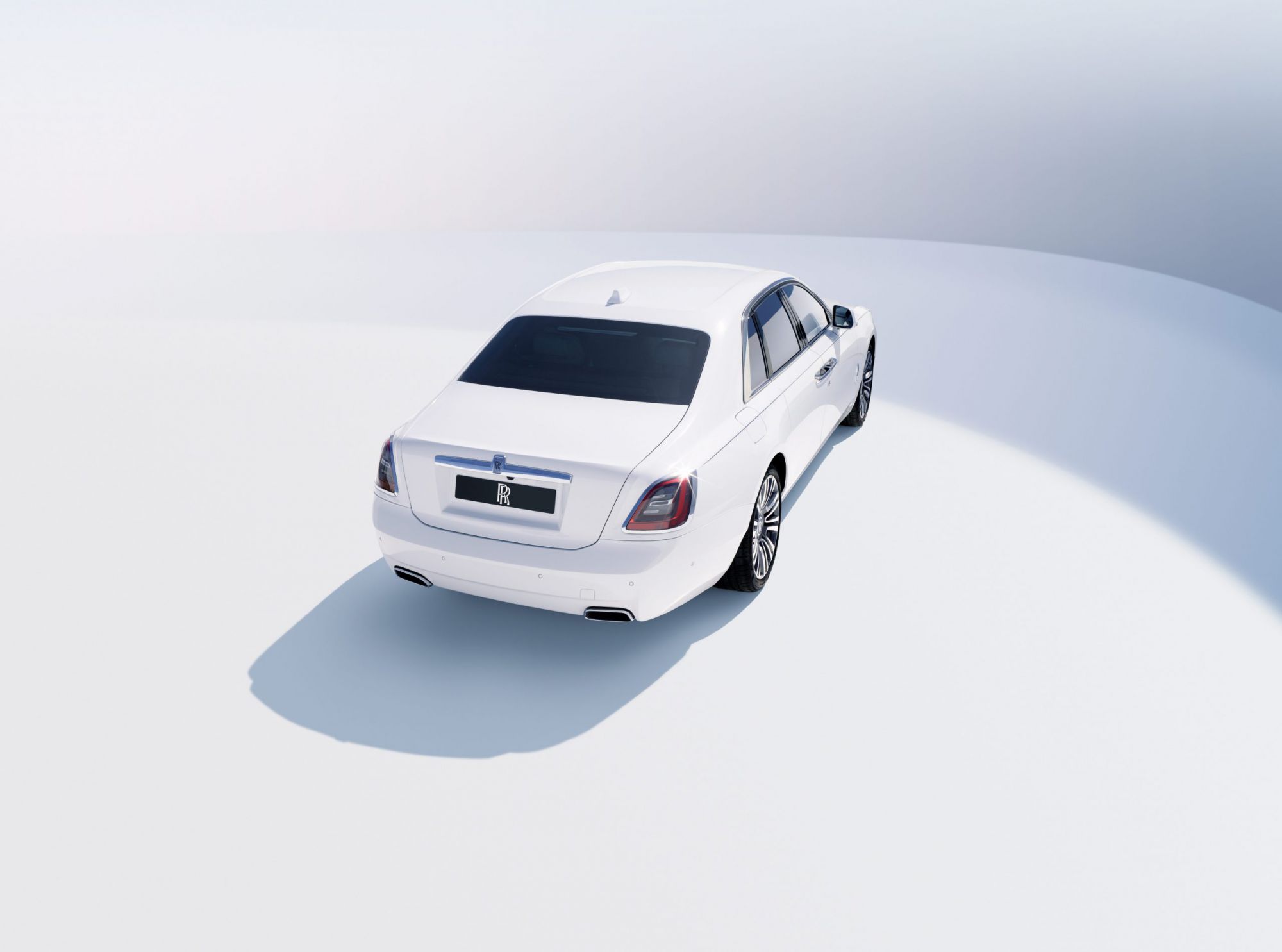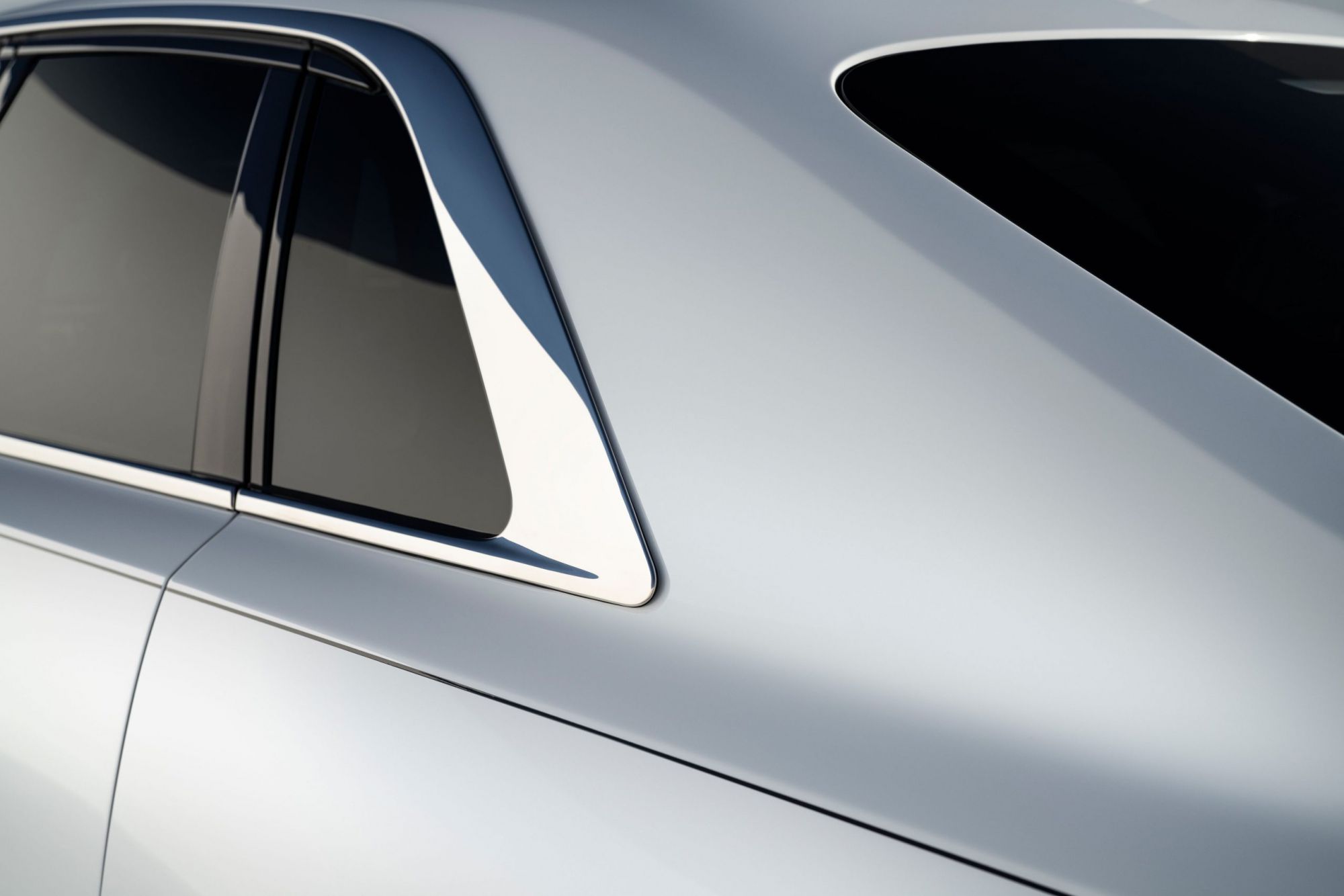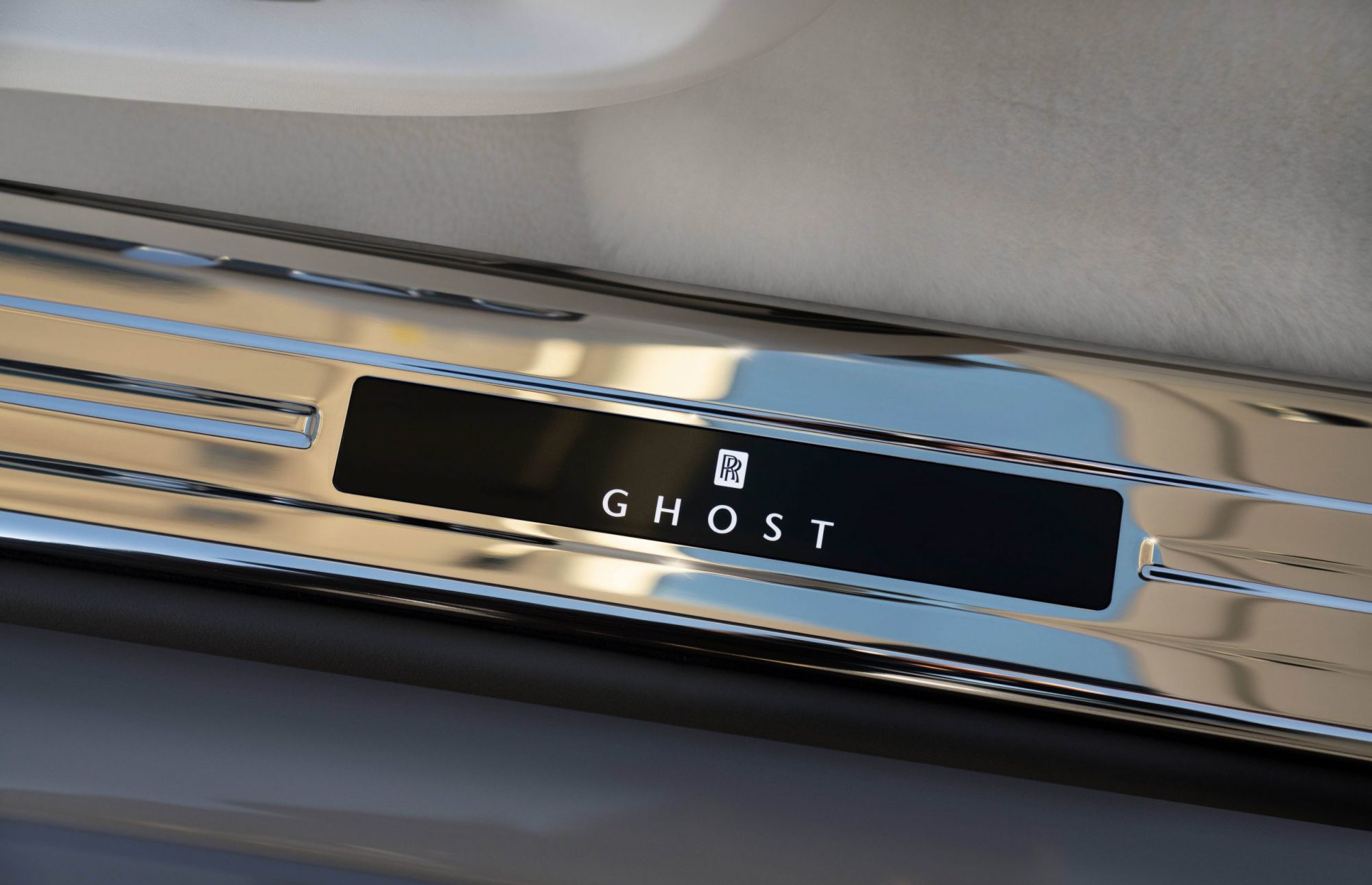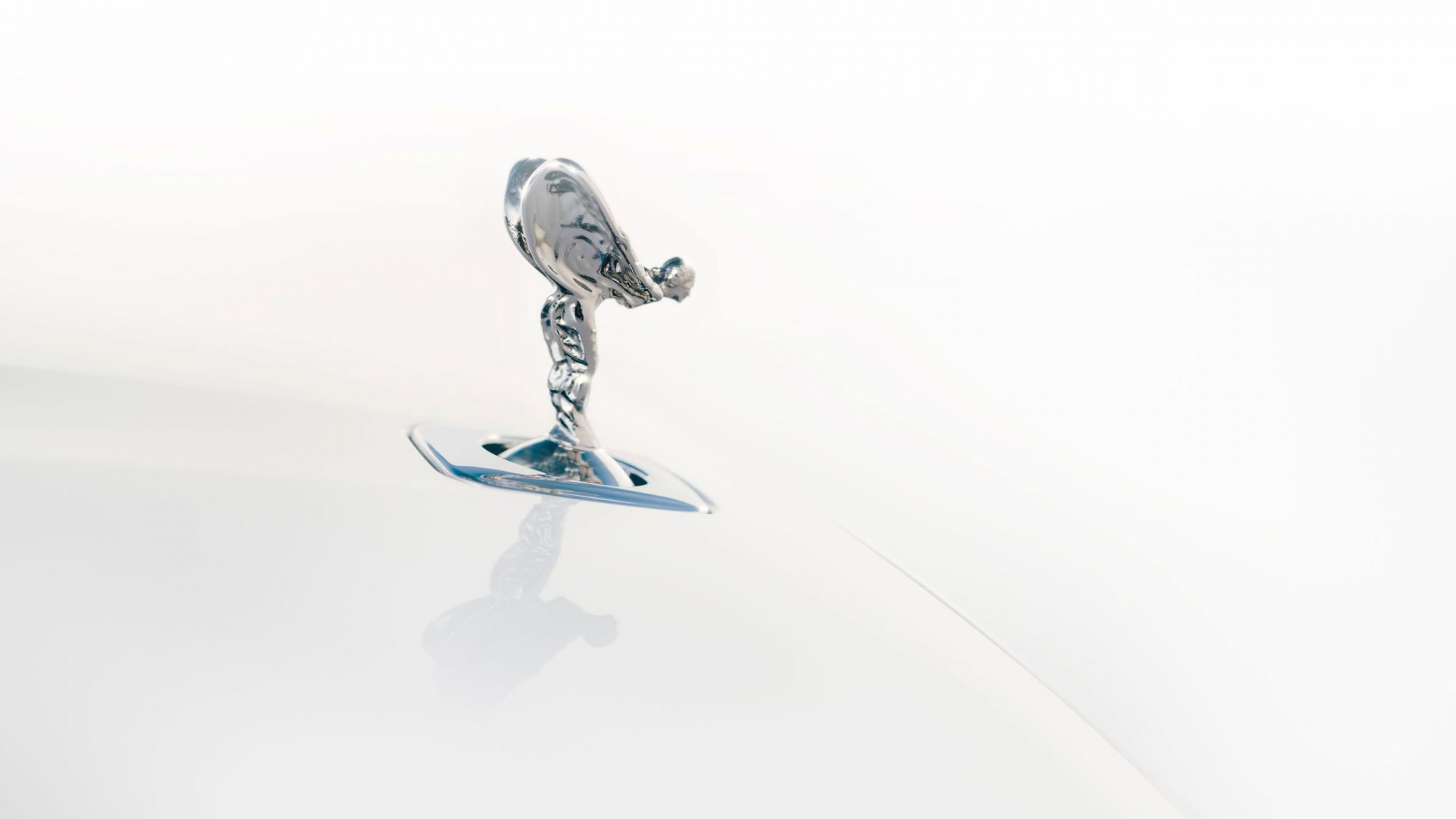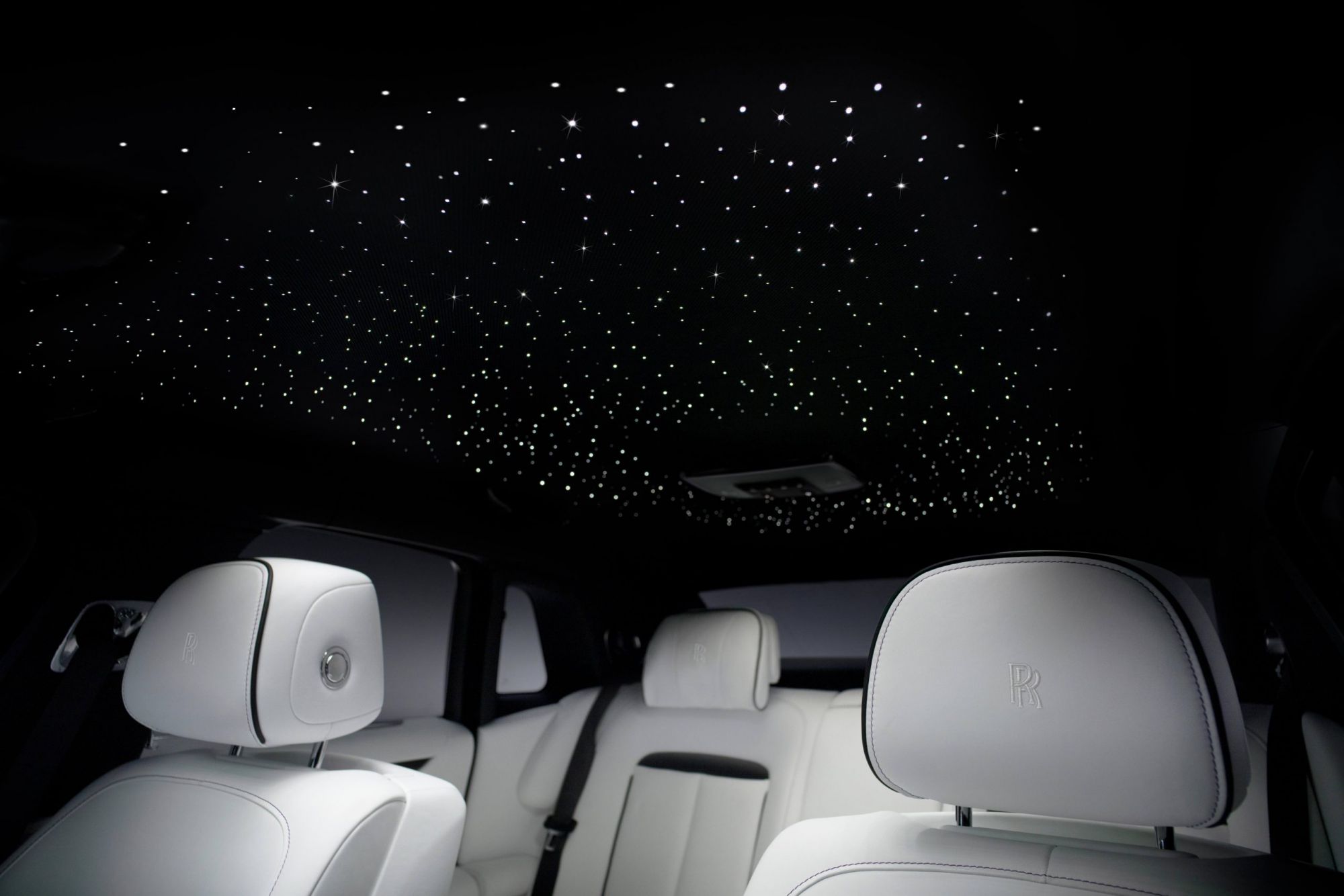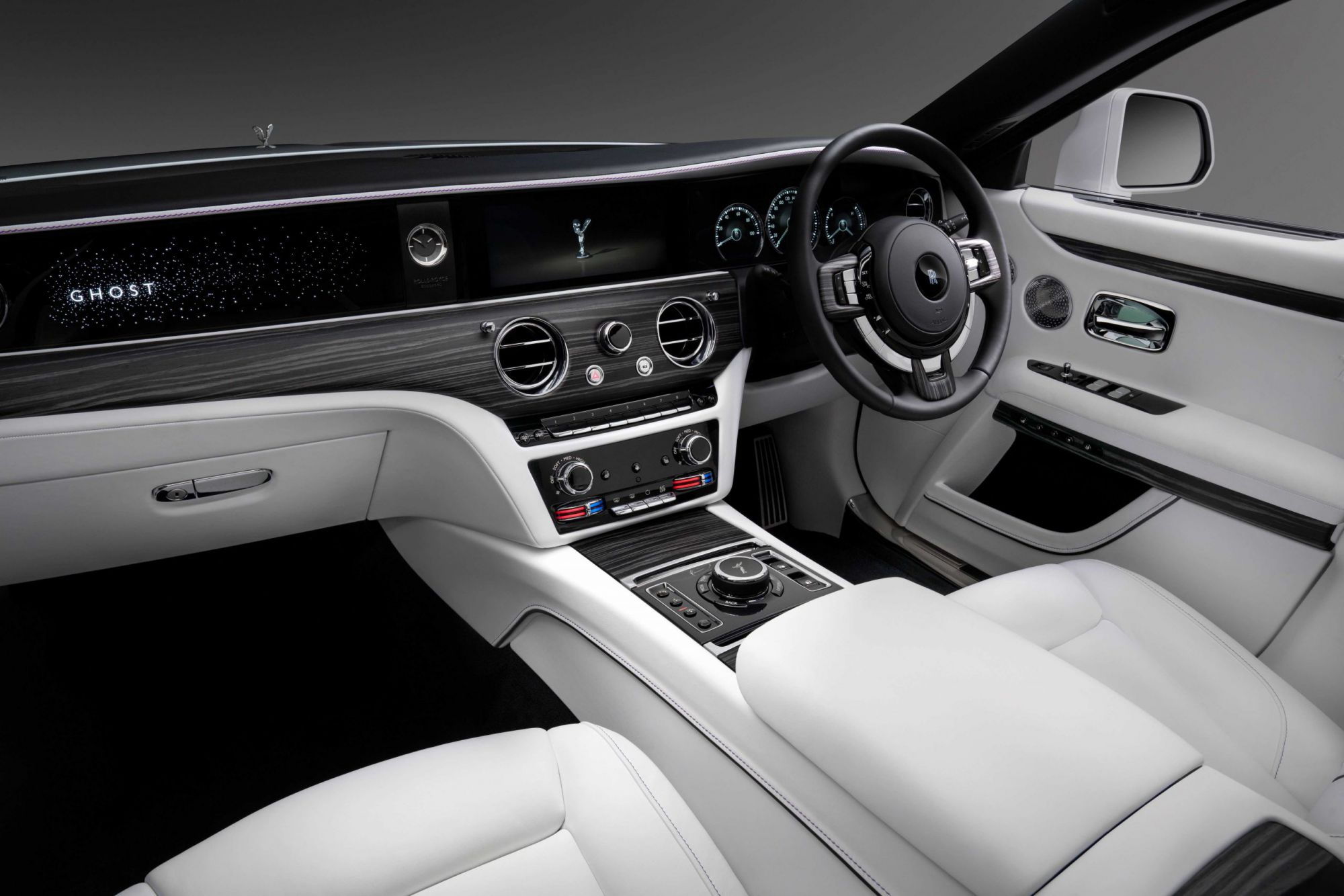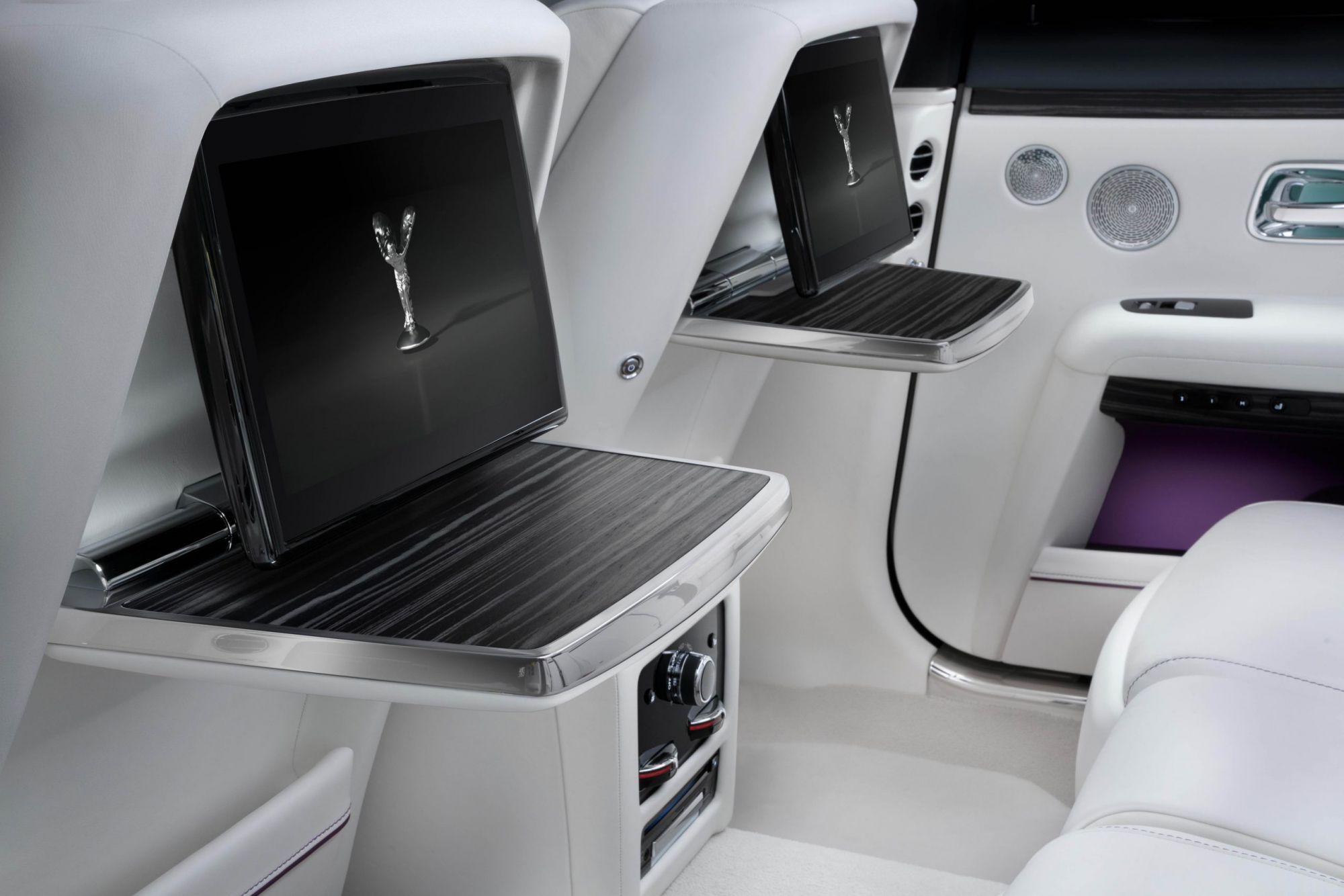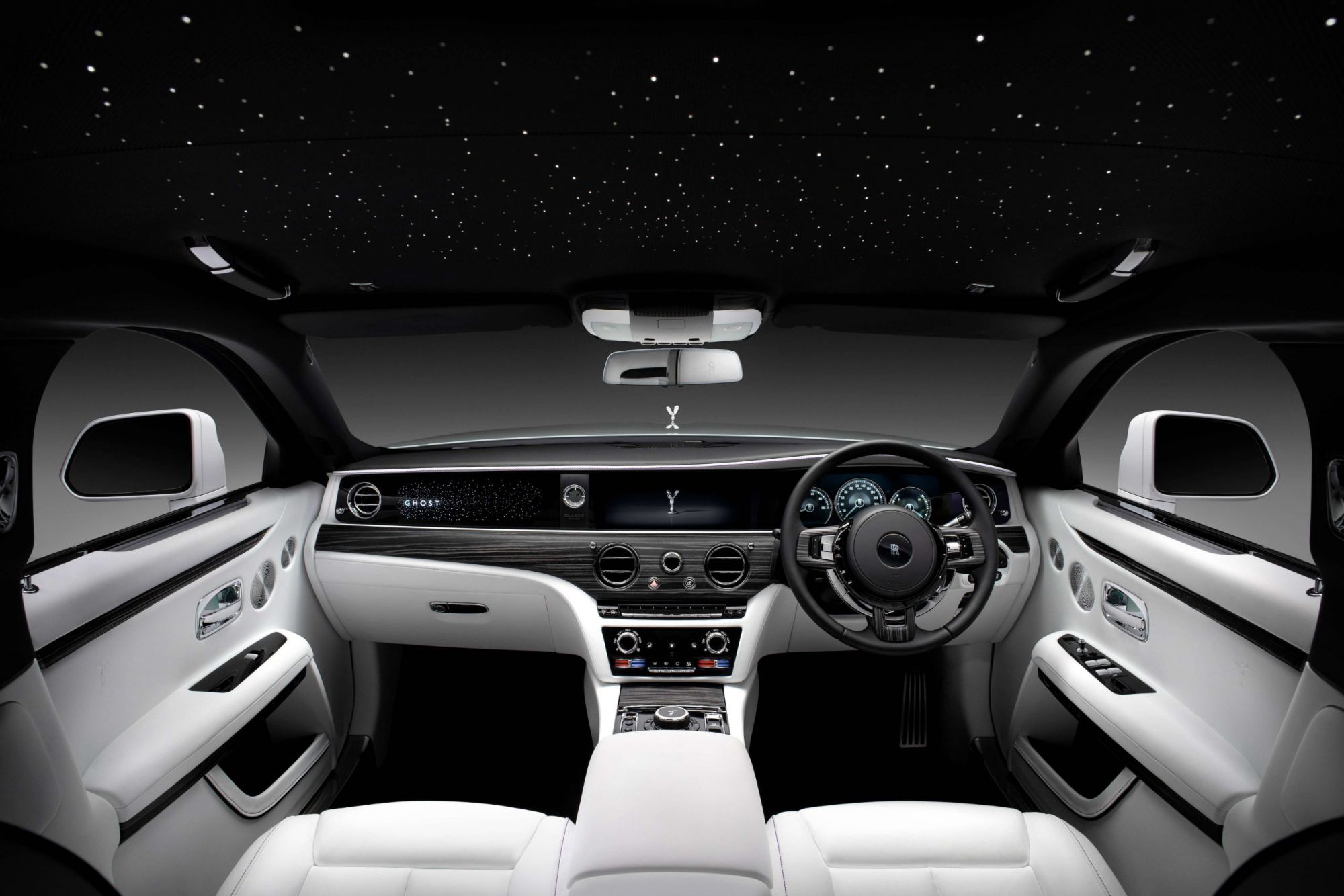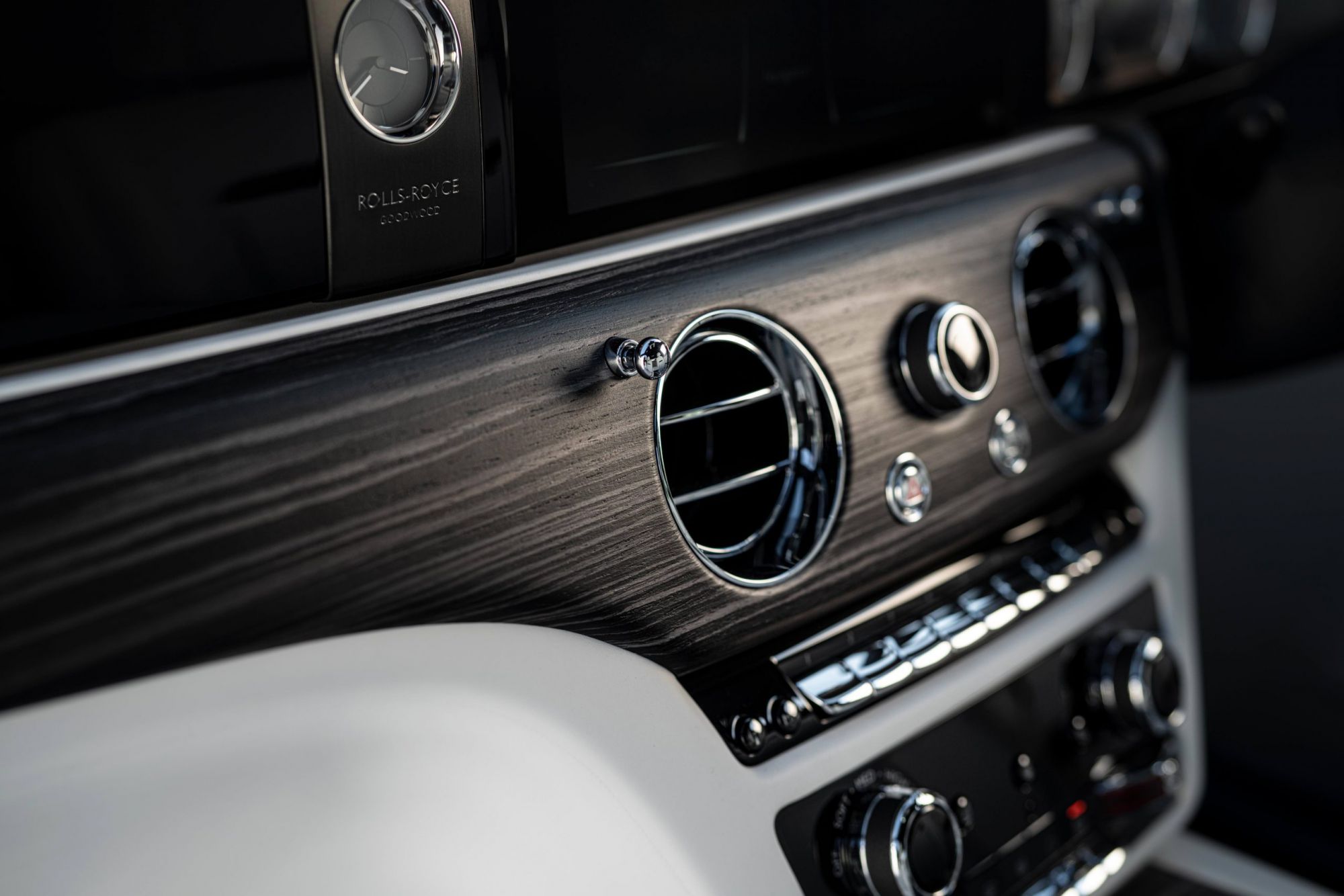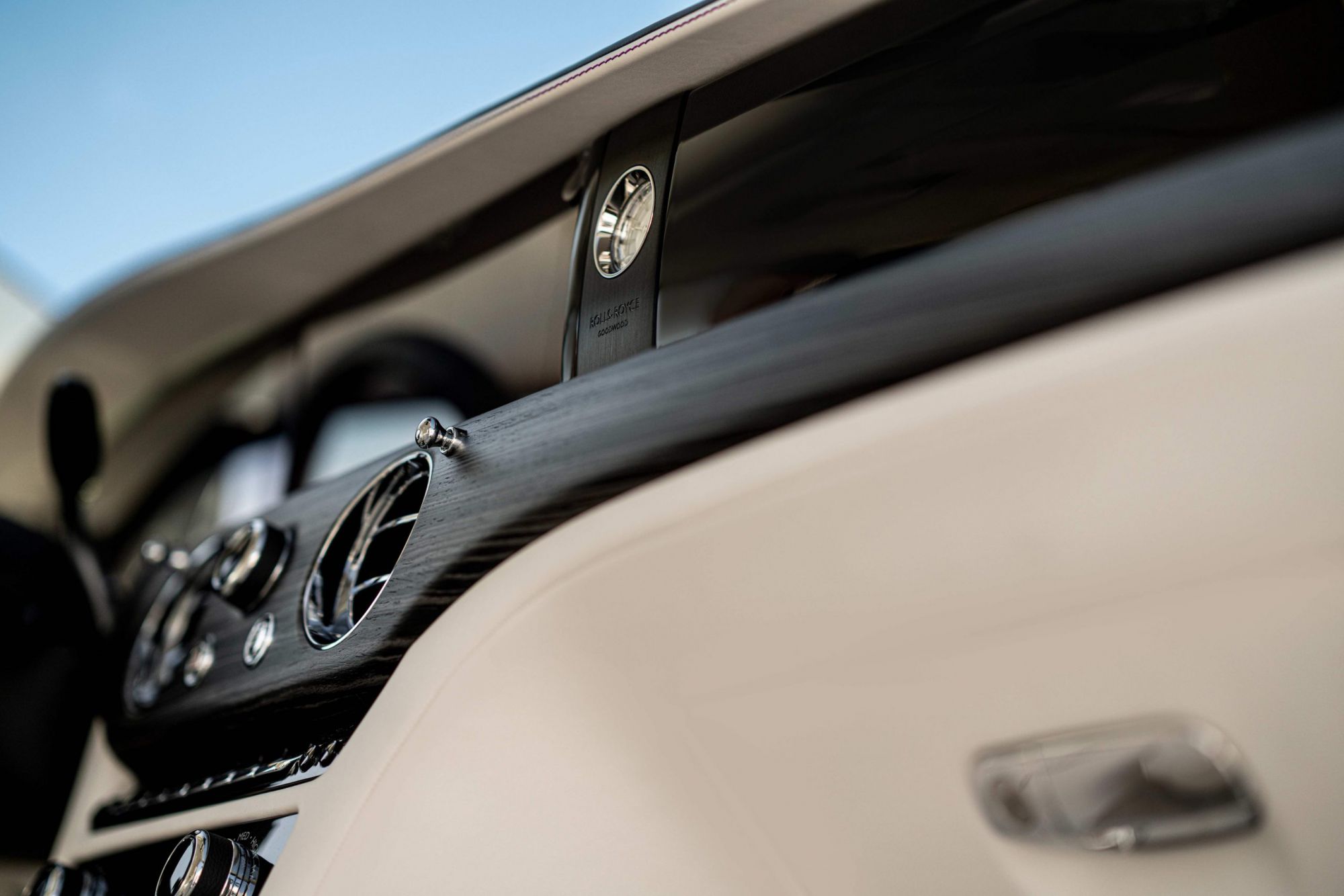Ghost protocol
Rolls-Royce has introduced its most technologically advanced car to date.
04 September 2020
The latest Ghost introduced by Rolls-Royce is a “complete redesign” claims the luxury car manufacturer.
Responding to a new generation of clientele, the new and improved Goodwood Ghost has undergone a revamp in design, engineering and craftsmanship, while introducing a more modest and minimalist approach.
First introduced in 2009, Rolls-Royce added the Goodwood Ghost to its portfolio, and offered something entirely different to its flagship Phantom.
“The first Goodwood Ghost was a response to a whole new generation of clients, both in age and attitude. These men and women asked us for a slightly smaller, less ostentatious means to own a Rolls-Royce,” explained Torsten Müller-Ötvös, Chief Executive Officer of Rolls-Royce Motor Cars.
Over its ten-year lifespan, Ghost become one of the most successful model in the marque’s 116-year history.
Ten years on, Rolls-Royce has positioned the Goodwood Ghost as a new type of super-luxury saloon that is dynamic, serenely comfortable and perfect in its minimalism.
CUTTING EDGE TECHNOLOGY
Already introduced in the the Rolls-Royce Phantom, and its transformative SUV, Cullinan, the Goodwood Ghost features the company’s proprietary aluminium spaceframe architecture.
In its most pared back form, the Rolls-Royce architecture is based around four fixed points, one at each corner of the motor car.
Two of the cast suspension mounting assembles were pushed to the very front of the new Ghost, placing its 6.75-litre V12 behind the front axle to achieve an optimum 50/50 weight distribution.
To accommodate this without intruding on new Ghost’s interior suite, its overall length has grown by 89mm, compared to the first Goodwood Ghost, to 5546mm, and its overall width has grown by 30mm to 1978mm.
Client feedback asking for near-instant torque and near-silent running led the marque to further develop the Rolls-Royce 6.75-litre twin-turbocharged V12 petrol engine.
Additionally, the car’s suspension was redesigned to deliver what is called the Planar Suspension System. It incorporates a world-first Upper Wishbone Damper unit above the front suspension assembly, creating an even more stable and effortless ride. This works alongside the Flagbearer system, which uses cameras to read the road ahead and prepare the suspension system for any changes in road surface, as well as the marque’s Satellite Aided Transmission.
Further technological improvements include:
- LED and laser headlights with more than 600 metres of illuminated range.
- alertness assistant; a four-camera system with panoramic view, all-round visibility and helicopter view
- active cruise control
- collision warning
- lane departure and lane change warning
- self-park
Effortless Doors
Rolls-Royce clients have enjoyed self-closing doors since the first Goodwood Phantom. For the new Ghost, clients can now also open the doors with power assistance.
Clients first open the door with one pull of the interior handle, then allow the handle to return to its resting position while they check for potential hazards, and then pull and hold it for full power assistance on opening. Once the door is opened sufficiently for the client’s egress, they simply stop pulling the handle, which engages a door brake.
Once the client has alighted, they are able to close the door completely automatically at the push of a button on the exterior door handle. If they prefer to close the door manually, the operation is power assisted. On-board longitudinal and transverse sensors, as well as G-force sensors fitted to each door, allow the same speed of operation regardless of hill or driveway angles.
The Formula for Serenity
With a focus on clients operating in complicated business worlds, Rolls-Royce has endeavoured to make the driving experience as quiet and comfortable as possible.
This is achieved through peerless chassis and drivetrain engineering, as well as creating a serene acoustic ambience within the interior suite.
The first element is the Rolls-Royce spaceframe architecture. Its aluminium construction has a higher acoustic impedance compared to steel. Larger sections of the architecture have also been created with specific access points for the installation of acoustic damping materials – new Ghost uses more than 100kg in total, applied in the doors, roof, between the double-glazed windows, inside the tyres and within nearly all of the architecture itself.
A number of other components were redesigned to reduce noise. The inside of the air conditioning ducting, for example, created an unacceptable level of wind noise so it was removed and polished to inform the production of the final component. Even the diameter of the prop shaft was adjusted and its rigidity increased to improve acoustics.
“To create a new product that would resonate with our Ghost clients for the next ten years meant we had to listen carefully to their demands,” continues Müller-Ötvös.
“The only components that we carried over from the first Goodwood Ghost were the Spirit of Ecstasy and umbrellas. Everything else was designed, crafted and engineered from the ground up. The result is the most technologically advanced Rolls-Royce yet.”



